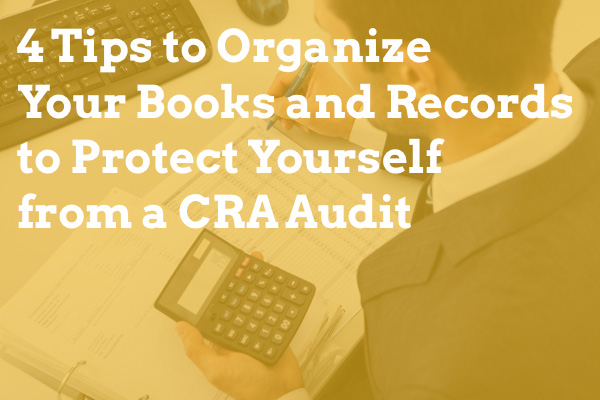I had an opportunity to sit down with a very inspiring lady yesterday.
She’s Chinese, grew up in Singapore. She left Singapore in her early 20’s to pursue a dream in Canada.
She and I shared a very similar background. She’s the second child of four children; 2 boys and 2 girls.
Most Chinese families favour males over females, believing that boys can continue to carry the family names while girls will marry into other families.
When she was really young, her dad already told all the children that he would leave everything to the boys if anything happened to him. Nothing for the girls.
The father probably had no idea how hurtful such a statement was to the girls. We might have never thought about getting anything to begin with, but making such a statement simply makes us feel inferior.
When I visited my family in Hong Kong after I had accepted an offer on my first home, my dad told me that he had no extra money to spare to help me out.
My aunt, a lady who married my uncle, offered me her own savings to help. She’s a stay at home mom and her savings were from a short lived career before.
The truth was-I never needed the financial help. I had more than enough for the downpayment and I was able to get a mortgage.
But my father wanted to set the record straight.
Both of us were disappointed, not so much because of the assets or help we could have got, rather a statement that made us feel that we were not good enough.
And sometimes, such a feeling can overshadow the rest of our lives.
Thankfully, we both are able to turn this obstacle into fuel.
She had started her real estate investing career in Canada back in 2003.
Today, she still owns 8 properties out of the 22 properties that she purchased back then.
The loan to value of these properties is approximately 17%. 🙂
She nets about $75K annually just from rent.
She’s had a successful career as a realtor and mortgage agent.
But she suddenly realized that she’s losing her edge. She’s got too comfortable with her life as a real estate agent and she forgot to plan for her future (despite the fact that she’s already had 8 properties).
Now she’s back in the game to continue to grow her portfolio, in order to provide for her future self and her daughter.
She wants to show her only child, her daughter who’s 21, how to be a strong independent woman that can take care of herself financially.
She’s 60 this year.
By the same token, we purchased a property for our daughter and property for our son to finance their education.
The book I am listening to recently, “Obstacle is the Way” by Ryan Holiday, says that we should only focus on what we can control, and not let our perception and emotion take over.
We can control how we react to our fathers’ statements. We can thrive on them.
When some of my clients get audited by Canada Revenue Agency, some of them get really upset and some of them may blame the government for wanting more tax money from them.
We can flip the coin and turn this into a positive experience.
We focus on what we can do in this situation and what’s the takeaway.
Here are some of the learning experiences my clients have had to best protect themselves.
- Have a clean record from the get-go Keep your documentation clean at the beginning. If you own a property with a joint venture partner 50/50 and you’re the one on title reporting only 50% of all the income and expense, it’s a good idea to set up the joint venture agreement at the very beginning. If you are the sole owner of the property but your significant other is on the title for the purpose of getting financing, it’s a good idea to have the trust agreement set up at the beginning and notarized by the lawyer at the time of closing. It’s also a good idea to keep your bank statement to show that the downpayment money was truly coming out of your bank account. If you are driving your car to manage your rental portfolio, it’s important to keep track of the mileage logbook from the beginning. So when the audit comes, you don’t have to scramble to look at your calendar 3 years ago to recreate the logbook. Make sure you keep your documentation clean so you have everything ready at the end of five years.
- Have a breakdown of all the expenses claimed When we file the tax returns, a lump sum total is entered into the tax return to reflect what was spent on an annual basis for each category of expenses. Depending on how you keep track of the expenses, some of the investors use excel or cloud accounting software, while some may simply add up all the expenses manually and enter the amount. For the purpose of filing, any of these methods would be sufficient. But when it comes down to the audit, you need to provide the support of the total that you are claiming. If you are keeping all paper copy receipts, a good way to substantiate the claim is to keep all the advertising expenses together with the excel summary (or a printout from your accounting software) that adds up to the total that you are claiming. If you are keeping everything electronically, simply keep all your receipts in a folder for each category expense. Or better yet, combine all receipts in one file for one year. If you are adding everything up manually, make sure you do so with an adding tape. Staple the tape at the top of the expenses so you know what you claimed for that year of expense.
It saves you lots of grief 4 years down the road to look for the missing receipt.
- Keep all the bank statements I love online banking. The downside of online banking is that we no longer have access to a paper statement. So when you want to show that the downpayment was made specifically from your own account five years down the road, you will have to call the bank and pay fees to get the original statements. Make sure that you print out a copy of the monthly bank statements for your own record.
- Hire a bookkeeper when you can’t handle the work When you grow your portfolio to a certain size, it’s definitely easier to hire someone to do the work for you. Be sure to share this blog post with your bookkeeper so they would know how to organize all your receipts.
Sometimes, all we can do is focus on what we can control and prepare ourselves well for them.
Until next time, happy Canadian real estate investing.
Cherry Chan, CPA, CA
Your real estate accountant





